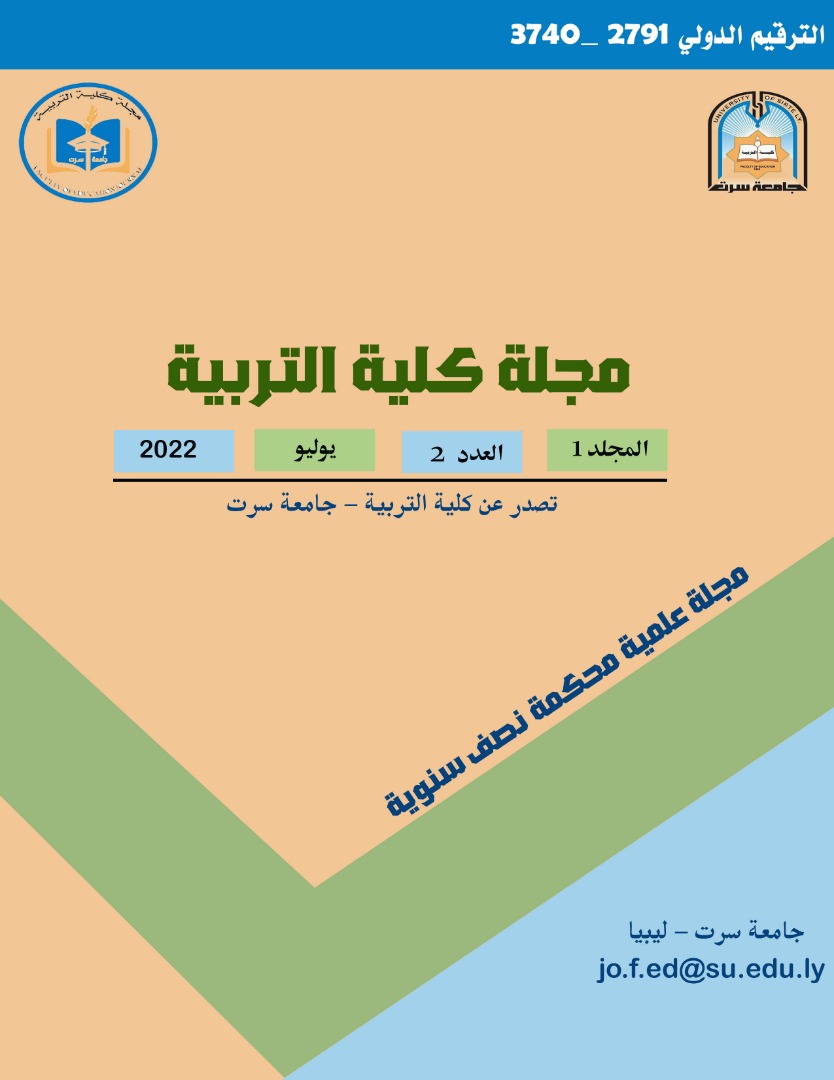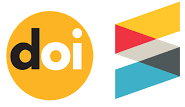C++ and Java: A Comparative Study of the Most Popular Object-Oriented Programming Languages in Libyan Universities
DOI:
https://doi.org/10.37375/foej.v1i2.512Keywords:
High-level programming, OOP, C , Java, inheritance, comparative study.Abstract
The software has been experienced a large level of improvements by a lot of scientific researchers in this world. It can be considered as a set of some meaningful instructions written in a certain programming language. There are several programming languages which got comprehensive popularity like C, C++, C#, and Java. These languages are used to primarily evolve various applications. Object-Oriented Programming (OOP) languages, such as C++ and Java are one of the main three categories of programming languages. Most of the programmers always have a debate about choosing the best object-oriented programming language to help them develop their software applications. This review paper involves a comparison of C++ and Java with respect to some theoretical aspects to figure out the basic differences between them. Consequently, guide students to make a critical decision to choose the most applicable object-oriented programming language to develop their applications. The study has focused on both programming languages because they are taught in most of Libyan universities.
References
M. Singh, H.S. Saluja, P. Talwar, and A. Kaur (2015) Comparison of OO programming languages, IJARCSSE, Volume 5, Issue 8, pp. 666-672.
Z. Parveen and N. Fatima (2016) Performance comparison of most common high level programming languages, IJCAR, ISSN 2305-9184, Volume 5, Number 5, pp.246-258.
R. Naim, M. F. Nizam, S. Hanamasagar, J. Noureddine, and M. Miladinova, Comparative studies of 10 programming languages within 10 diverse Criteria, a team 10 COMP6411-S10 Term Report.
B. K. Bruce (2002) Foundations of object-oriented languages: Types and semantics”, Computer Science and Intelligent System, MIT Press.
TIOBE programming community index for January 2022, available at http:// https://www.tiobe.com/tiobe-index/
K.C. Chen (2004) Comparison of object-oriented and procedure-based computer languages: Case study of C++ programming, Issues in Information Systems, Volume V, No 1.
L. F. Capretz (2003) A brief history of the object- oriented approach”, Software Engineering Notes vol 28 no 2.
F. U. Onu, M. O. Ezeji (2016) Comparative Study of Structured and OOP Paradigms, International Journal of Advanced Research in Computer Science and Software Engineering, Volume 6, Issue 8.
W.R. LaLonde, J. McGugan, and D. Thomas (1989) The real advantages of pure object-oriented systems or why object-oriented extensions to C are doomed to fail”, ." In Computer Software and Applications Conference, 1989. COMPSAC 89., Proceedings of the 13th Annual International, pp. 344-350. IEEE.
B. Stroustrup (1995) Why C++ is not just an object-oriented programming language, addendum to OOPSLA95 Proceedings, ACM OOPS Messenger.
P. Wegner (1990) Concepts and paradigms of object-oriented programming, ACM SIGPLAN OOPS Messenger 1.1: 7-87.
E. Kindler,I. Krivy (2011) Object-oriented simulation of systems with sophisticated control, International Journal of General Systems: 313–343.
L.K. Ferrett, and J. Offutt (2002) An empirical comparison of modularity of procedural and object-oriented software, Thirteenth International Conference on Engineering of Complex Computer Software, Annapolis, MD.
A. Gupta, S. Chempath, ,M.J Sanborn, , l.a. Clark, and R.Q Snurr (2003) Object-oriented programming paradigms for molecular modeling”. Molecular Simulation, 29(1), 29-46.
F. Albalooshi, and A. Mahmood (2017) A Comparative study on the effect of multiple Inheritance mechanism in Java, C++, and Python on Complexity and Reusability of Code, IJACSA, Vol. 8, No. 6.
A. Shalloway, and J. R. Trott (2005) The Object-oriented paradigm”, Volume 2, Issue 3.
K. Nørmark (2010) Object-oriented Programming in C# for C and Java programmers, Aalborg University, Denmark.
S. Bjarne (2014) Programming: principles and practice using C++. Pearson Education.
S. Bjarne (1991-2006) Evolving a language in and for the real world: C++.
S. Bjarne (2015) Stroustrup: Thoughts on C++17 - An Interview, Interviewed by Sergio De Simone.
S. Bjarne (2013) The C++ Programming Language. 4th ed , ISBN 978-0-321-56384-2. QA76.73.C153 S77.
S. Bjarne (2015) Lecture: The essence of C++. University of Edinburgh.
ISO/IEC Programming Languages – C++11 Draft” (n3797) §3.7 Storage duration [basic.stc].
G.Lo. Russo (2015) An Interview with A. Stepanov. stlport.org.
Boost . The Boost library collection. http://www.boost.org/
V. Dwarampudi, S.S Dhillon, J. Shah, N.J Sebastian, and N. Kanigicharla (2010) Comparative study of the pros and cons of programming languages Java, Scala, C++, Haskell, VB. NET, AspectJ, Perl, Ruby, PHP & Scheme-a” Team 11 COMP6411-S10 Term Report. arXiv preprint arXiv:1008.3431.
K. Arnold, J. Gosling, and D. Holmes (2005) The Java programming language, Addison Wesley Professional.
V. Kleber, A. Schulter, C. Westphall, and C. Westphall (2010) Intrusion detection techniques in grid and cloud computing environment, IT Professional, IEEE Computer Society 12, no. 4: 38-43.
H. Chen (2010) Comparative study of C, C++, C# and Java programming languages, university of applied sciences, Degree Program of Information Technology.
A. Snyder, “Encapsulation and inheritance in object-oriented programming languages”.
P. S. Gondchawar (2015) Comparison between Object Oriented Programming Languages: Java and C++, International Journal of Advance Research in Computer Science and Management Studies, Volume 3, Issue 3.
G.Lo. Russo (2015) An Interview with A. Stepanov, stlport.org.
Z. Alomari, O. El Halimi, K. Sivaprasad, C. Pandit (2015) Comparative Studies of Six Programming Languages.
O. B. Oyenike (2012) Comparative analysis of some programming languages”, Transnational Journal of Science and Technology, vol. 2, No. 5.
G. Jindal , P. Khurana , T. Goel (2013) Comparative study of C, objective C, C++ programming language, International Journal Of Engineering And Computer Science ISSN:2319-7242, Volume 2 Issue 1, Page No. 202-206.
R. Sharma, A.J. Singh, Pankaj Gupta (2016) Analytical Comparison of the Programming Languages, International Advanced Research Journal in Science, Engineering and Technology, Vol. 3, Issue 11.
Ruchi Sharma, A.J Singh (2016) Comparative Study of the Programming Languages, International Journal of Advanced Research in Computer and Communication Engineering, Vol. 5, Issue 8.
Mrs. Partibha, Mrs. Ashu Khokhar (2015) Comparative study of C, C++, C# and Java programming languages, International Journal of Enhanced Research in Management & Computer Applications, ISSN: 2319-7471, Vol. 4 Issue 6, pp: (7-12), Impact Factor: 1.296.
K. Biswa, B. Jamatia, D. Choudhury, and P. Borah (2016) Comparative analysis of C, Fortran, C# and Java programming languages, Keshav Biswa et al, IJCSIT, Vol. 7 (2) , 1004-1007.
A.M. Alnaser, O. AlHeyasat, A.A. Abu-Ein, H.M.Said, A.A. M. Sharadqeh (2012) Time comparing between Java and C++ software, Journal of Software Engineering and Applications, 5, pp 630-633.
D. Wu, L. Chen, Y. Zhou, B. Xu (2015) A metrics-based comparative study on object-oriented programming languages, State Key Laboratory for Novel Software Technology at Nanjing University, Nanjing, China.
P. Prajakta, A. Shweta, P. Priyanka, Prof. Ram Meghe (2018) C, C++ and JAVA: The Magic of Computer Programming Language, International Journal of Innovative Science and Research Technology, pp 151-153.









